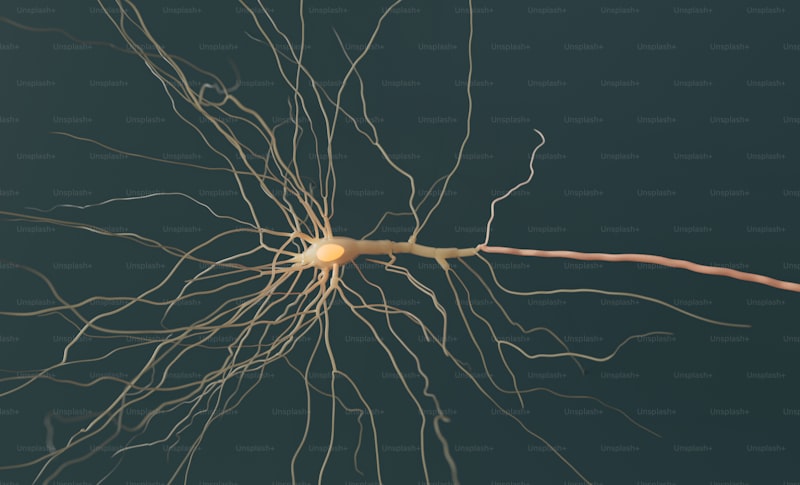One of the incredible benefits of yoga for your nervous system is its ability to dial down the stress response. You know that tight feeling in your chest after a long, hectic day? Yoga helps to release that tension by activating the parasympathetic nervous system—the body’s natural relaxation response. It’s like giving your nerves a soothing massage after a tough workout.
But that’s not all; yoga also improves nerve function on a deeper level. Through a series of poses, breathing exercises, and meditation, yoga enhances the communication between your brain and the rest of your body. Think of it as upgrading from dial-up internet to lightning-fast fiber optics for your nerve signals.
Have you ever noticed how your mood shifts after a yoga session? That’s because yoga boosts neurotransmitters like serotonin and gamma-aminobutyric acid (GABA), which are crucial for maintaining mental well-being. It’s like a natural mood enhancer without the side effects of pharmaceuticals.
And let’s not forget about the physical benefits. Yoga helps to improve circulation, which ensures that your nerves receive an ample supply of oxygen and nutrients. This improved blood flow nourishes your nerve cells and supports their optimal functioning. It’s like watering a garden—healthy circulation keeps your nervous system blooming.
In a world where we’re constantly bombarded with stimuli, yoga offers a sanctuary for your nervous system. It’s a chance to unplug, unwind, and recalibrate. So, whether you’re a beginner or a seasoned yogi, roll out your mat and give your nerves the TLC they deserve. Your body and mind will thank you for it.
Unlocking Inner Calm: How Yoga Soothes and Strengthens Your Nervous System
Imagine your nervous system as the intricate wiring that connects every part of your body, transmitting signals and responses like a well-coordinated orchestra. Just like any complex system, it sometimes needs fine-tuning and care to function at its best. Here’s where yoga steps in as the conductor, orchestrating harmony within.
Yoga isn’t just about striking poses; it’s a holistic practice that combines breathing exercises, meditation, and mindful movement. When you unroll your mat and begin a session, you’re embarking on a journey to soothe your nervous system. Through controlled breathing, known as pranayama, you can activate the body’s relaxation response, calming the chatter of your mind and reducing stress hormone levels.
As you flow through yoga postures, or asanas, you’re not only stretching and strengthening your muscles but also stimulating your nervous system. The gentle twists, bends, and balances send signals to your brain that it’s time to relax and unwind. This can help alleviate chronic tension held in the body, promoting a profound sense of calm.
Moreover, the meditative aspects of yoga nurture a deep connection between mind and body. By practicing mindfulness during yoga, you cultivate awareness of the present moment, letting go of worries about the past or future. This mindful awareness is like a soothing balm for your nervous system, easing it into a state of tranquility.
Studies have shown that regular yoga practice can lower cortisol levels, the primary stress hormone, and increase gamma-aminobutyric acid (GABA) levels, a neurotransmitter that promotes calmness. It’s like giving your nervous system a refreshing reset, allowing it to function more efficiently amidst life’s daily challenges.
Neuroscience Meets Zen: The Science Behind Yoga’s Impact on Nerve Health
Yoga, an ancient practice originating from India, isn’t just about stretching and breathing. It delves deep into the intricate workings of our nervous system. At its core lies a synergy between body and mind that modern science is increasingly unraveling.
The nervous system, comprising the brain, spinal cord, and intricate network of nerves, is like a complex web transmitting messages throughout our body. Yoga postures (asanas), coupled with controlled breathing (pranayama), stimulate this system in profound ways. Imagine each pose as a choreographed dance of nerve activation, enhancing flexibility, and promoting nerve function.
Research indicates that yoga can modulate the stress response, which directly impacts nerve health. Chronic stress can wreak havoc on our nerves, contributing to conditions like neuropathy. Through mindfulness and relaxation techniques inherent in yoga, individuals can potentially mitigate these effects, promoting nerve resilience and overall well-being.
Furthermore, yoga’s emphasis on balance and proprioception—the body’s awareness of its position in space—plays a pivotal role in nerve health. As we hold poses and engage muscles, we’re not just strengthening our physical bodies but also fine-tuning the neural connections that facilitate movement and sensation.

In essence, yoga serves as a holistic therapy for nerve health, marrying ancient wisdom with modern scientific understanding. It’s not merely about physical exercise but a profound journey into self-awareness and neural rejuvenation.
From Stress to Serenity: Yoga’s Role in Nerve Stress Reduction
Yoga isn’t just about striking poses or bending into pretzel-like shapes. It’s a holistic approach to wellness that combines physical postures, breathing exercises, and meditation to harmonize the body and mind. One of its remarkable benefits is its ability to reduce nerve stress, offering a path from frazzled nerves to a serene state of being.
How does yoga work its magic on nerve stress? Imagine your nerves as pathways that can get congested with the traffic of daily worries and anxieties. Yoga acts like a skilled traffic controller, easing the congestion and allowing a smooth flow of energy throughout your body. Through gentle stretches and deliberate breathing, yoga helps release tension stored in the muscles and soothes the nervous system.
Research supports yoga’s role in stress reduction. Studies have shown that regular practice can lower levels of cortisol, the hormone responsible for stress, and increase gamma-aminobutyric acid (GABA), a neurotransmitter that promotes relaxation. It’s like giving your nervous system a refreshing oasis in the midst of life’s hectic desert.

Moreover, yoga encourages mindfulness – the practice of being present in the moment without judgment. This mindfulness spills over into daily life, helping practitioners respond to stressors with greater calm and clarity. Instead of reacting impulsively to triggers, you become more adept at navigating challenges with a sense of inner peace.
Whether you’re a novice or a seasoned yogi, incorporating yoga into your routine can be a game-changer for managing nerve stress. Just a few sessions a week can yield noticeable benefits, leaving you feeling more grounded, resilient, and ready to tackle whatever life throws your way.
So, if stress has been knocking on your door a bit too often lately, perhaps it’s time to roll out your yoga mat and embark on a journey from stress to serenity. Your nerves will thank you for it, and you might just discover a newfound sense of balance and tranquility along the way.
Yoga’s Healing Touch: Rejuvenating Your Nervous System Naturally
The nervous system, akin to an intricate web of communication within your body, plays a pivotal role in transmitting messages between your brain and the rest of your body. It regulates everything from your heartbeat to your sense of touch. Over time, daily stresses and pressures can overwhelm this delicate system, leading to fatigue, anxiety, and even physical ailments.
Enter yoga, a practice that dates back thousands of years and has evolved into a therapeutic powerhouse in modern times. Through a combination of gentle postures, controlled breathing techniques, and mindfulness exercises, yoga helps to calm the mind and relax the body. This, in turn, has a profound effect on your nervous system, promoting balance and rejuvenation.
Imagine yoga as a reset button for your nervous system. Just like how a computer reboots to refresh its operations, yoga allows your nervous system to unwind and recalibrate. Each yoga pose gently stretches and strengthens different parts of your body while encouraging deep, rhythmic breathing. This deliberate focus on movement and breath triggers the parasympathetic nervous system, often referred to as the “rest and digest” mode. Here, stress hormones like cortisol decrease, while feel-good neurotransmitters like serotonin increase, fostering a sense of calm and well-being.
Moreover, regular yoga practice can enhance the overall resilience of your nervous system. By reducing chronic stress and promoting relaxation, yoga helps to fortify the connections between nerve cells, improving their efficiency and responsiveness. This not only sharpens cognitive function but also enhances your body’s ability to adapt to everyday challenges.
Frequently Asked Questions
Can yoga improve nerve function and flexibility?
Discover how yoga enhances nerve function and flexibility through a series of gentle movements and stretches that promote circulation, release tension, and improve overall mobility.
How does yoga help reduce stress and anxiety?
Learn how yoga reduces stress and anxiety through a combination of controlled breathing, mindful movement, and relaxation techniques. Yoga promotes relaxation responses in the body, lowers cortisol levels, and improves overall mental well-being.
What are the specific ways yoga benefits the nervous system?
Discover how yoga benefits the nervous system through practices that reduce stress, promote relaxation, improve nerve function, and enhance overall mental well-being.
Are there scientific studies supporting yoga’s impact on the nervous system?
Discover scientific studies that validate yoga’s positive effects on the nervous system. Learn how yoga practices like asanas and pranayama techniques contribute to stress reduction, improved mental clarity, and enhanced nervous system function.
What types of yoga are best for enhancing nervous system health?
Discover which types of yoga are most effective for improving nervous system health. Learn about specific yoga practices that promote relaxation, reduce stress, and enhance overall nervous system function.


